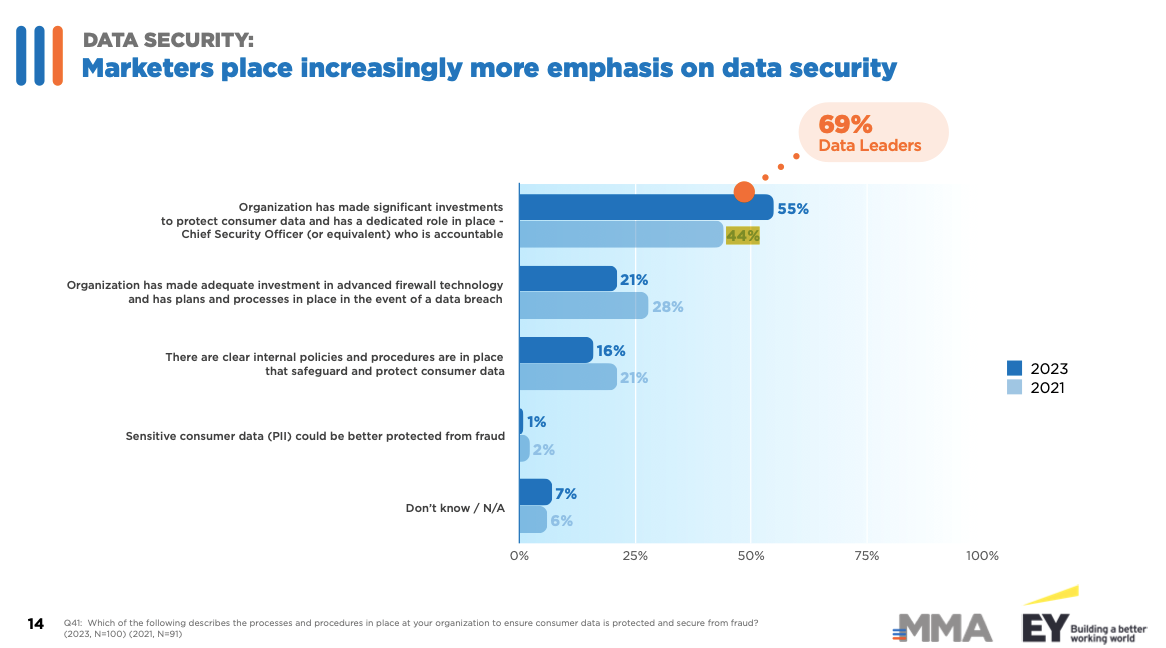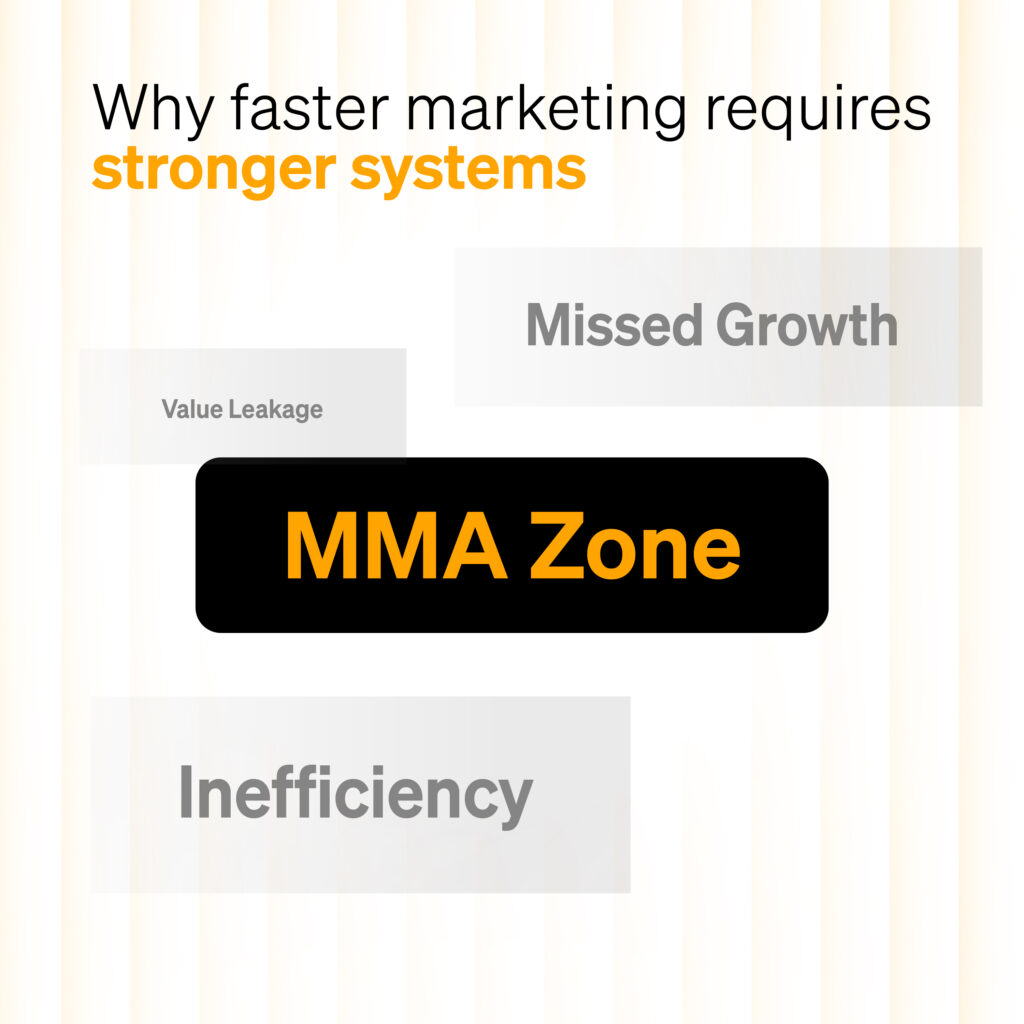
In contemporary marketing research, data maturity, defined as the capability of brands and marketers to effectively manage and utilize data, has become essential for achieving greater business impact.
MMA Global, with the trailblazers across the marketing and advertising industry, has built Data Think Thank (DATT) to powering marketers with the best understanding of the evolving data landscape, building winning data strategies, and building data-centric organizations to drive better business outcomes and customer experiences (CX).
The MMA partnered with EY to survey marketing leaders (2023), assessing their current state of data maturity and advancing the concept of Data Maturity 2.0.
Explore the Data Maturity 2.0 Assessment Tool: https://www.mmaglobal.com/data-maturity-assessment

Illustration reference in the chart above
As a result, 55% of surveyed companies are deeply committed to protecting customer data and privacy and has a dedicated role in place who is accountable. Learn on how to navigate and advance the data landscape within your organisations:
5 Key Implications for Companies Navigating the Data Landscape
Accelerate Data Strategy
The pace of change and evolution in data maturity remains relatively slow. To stay competitive, companies must accelerate their efforts in crafting a clear data vision and aligning it with their business objectives. Embracing data-driven decision making and prioritizing long-term growth strategies are crucial steps in this journey.
Address Data Availability Challenges
Data availability continues to pose significant challenges for organizations. Companies should invest in overcoming data accessibility barriers to ensure effective utilization of valuable data assets. Prioritizing the development of first-party data sources can help establish a more reliable and comprehensive data foundation.
Prioritize Data Integration
Limited progress in data integration hinders organizations’ ability to centralize data and make it accessible across the entire company. Robust integration strategies are needed to break down data silos, enabling seamless data utilization and fostering a holistic view of customers and operations.
Enhance Analytics Capabilities
While there is a growing focus on analytics, companies recognize the need for additional resources and capabilities to fully leverage data insights. Investing in advanced analytics tools, talent, and resources is essential for extracting valuable insights and optimizing decision-making processes.
Foster a Culture of Data Governance and Security
Proactive risk management, governance, transparency, and data security practices are essential to mitigate potential risks and build trust with consumers. Companies should prioritize establishing robust data governance frameworks, promoting transparency in data practices, and enhancing data security measures to protect sensitive information.



















